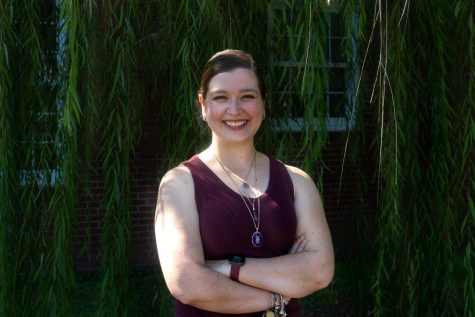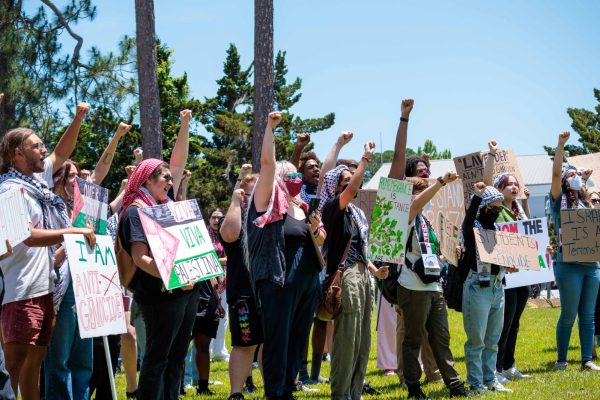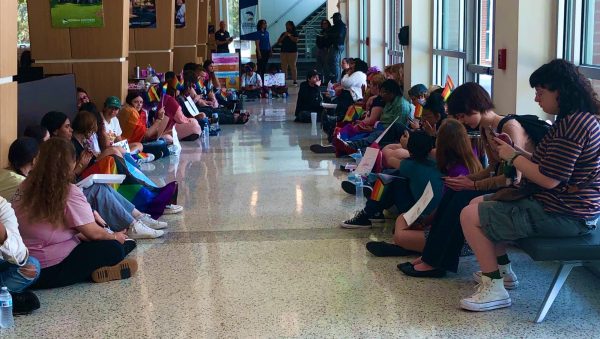(Opinion) Banned Book: Their Eyes Were Watching God
Zora Neale Hurston’s novel, Their Eyes Were Watching God, first published in 1937, tells the story of Janie Crawford, a light-skinned African American woman who struggles and triumphs as she grows and eventually learns to live for herself instead of others.
The book, which takes place in Florida in the early 20th century, starts with Janie’s sexual awakening as a teenager when she allows a local boy to kiss her. Still, it is witnessed by her grandmother, Janie’s guardian.
She informs Janie that she has arranged for Janie’s marriage to an older man named Logan Killicks. Killicks sees Janie simply as a hired hand, even calling her spoiled. Janie’s longing for a union filled with love falls on deaf ears of her grandmother.
After her grandmother’s death, Janie is miserably lonely until she meets Joe “Jody” Starks and decides to run away with him to the all-black community of Eatonville, where he owns a general store and is elected mayor.
However, with the rise in his fortunes comes the decline in his treatment of Janie; he refuses to let her out in public and verbally and eventually physically abuses her. Janie has been nothing more than his property and punching bag for twenty years.
When he dies of liver failure, Janie finally gains financial security and independence. Although several men lust after her beauty and wealth, she denies them all until she meets the youthful gambler named Vergible “Tea Cake” Woods. Despite their age difference, who is charming and kind to her, they fall in love and get married before moving down into the Everglades.
Although their relationship can occasionally be volatile, there is no denying that they love each other. Janie believes she has finally found the loving marriage she has dreamed of since she was a teenager.
However, their happy ending is shattered when the Great Okeechobee Hurricane of 1928 rips through the Everglades. Although Tea Cake saves Janie from drowning in the floods, he is bitten by a rabid dog and eventually goes savage.
When he attacks Janie, she is forced to shoot him in self-defense and is subsequently put on trial for his murder. Although Tea Cake’s friends call her guilty, a group of white women supports her, and the jury acquits her.
Rather than stay in the Everglades, Janie decides to return to Eatonville, where people gossip about her returning alone to live after running away with a young man twenty years her junior. Janie, now in her forties, recounts the story to her friend, saying, “I done two things everbody’s got tuh do fuh theyselves. They got tuh go tuh God, and they got tuh find out about livin’ fuh themselves.”
Although the novel was initially poorly received, it has since become one of the most well-known novels in African American literature and a popular feminist read. But not everyone is a fan.
In 1997, the book was banned in Virginia because parents objected to the language and sexual explicitness, seeming to find fault with Janie’s relationship with the much-younger Tea Cake.
It seems surprising that the age gap between the protagonist and her true love is the biggest issue some readers take. Not the initial loveless arranged marriage to an older man, not the twenty years of abuse she suffered at the hands of her second husband.
The other main issue was the language portrayed in the novel, which was Hurston’s effort to be as authentic as possible to the culture and dialect of the time period the novel takes place.
Although these issues mean the book is on the list of Banned & Challenged Classics | Advocacy, Legislation & Issues, few can deny the underlying message of a woman’s journey and discovery of self-empowerment. Thus the novel is still included in the curriculum of several school districts across the country.














Zachary Teter • Sep 23, 2022 at 11:50 am
Don’t ban any books. Read the material and decide for yourself what you think. People will be exposed sooner are later to the cruelties in this world. Why not experience them in a book first which is non-threatening. Ban these nuts book banners.